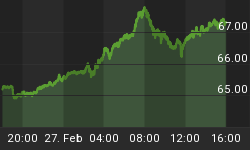Executive compensation is a difficult issue. Although we grant that the challenge in designing a reasonable system that works in all seasons is daunting, in the net we come down on the side that the compensation is too often too great.
We believe that the incentives are not adequately designed by objective third-parties -- highly compensated directors who like their pay and serve at the pleasure of the CEO are not objective third parties.
Now with the moral hazard element associated with government rescue of financial institutions, the possibility of truely unjust enrichment of banking executives looms large.
Many bank executives received large salaries and large bonuses for the growth and illusory short-term profits associated with mortgage lending and mortgage securitization that landed us in the current mess.
Some lost their jobs as a result of massive losses of shareholder equity, while being shoved out the door with huge sums of severance pay.
Now we face the issue of executive stock options issued recently during this period of deeply depressed bank stock prices. Will they balloon into great riches for executives who happen to be at the helm when the Fed, the Treasury, the Congress and ultimately the tax payers bail-out the banking system?
To look at the situation more closely, we used The Corporate Library database (www.TheCorporateLibrary.com), which tracks corporate actions, including executive compensation, and ranks public companies on several dimensions of corporate governance.
We found The Corporate Library database to be an excellent resource on all manner of questions about corporate actions, ranging from proxy issues, to board composition and cross linkages, to executive compensation and other matters. They roll it all up into a net corporate governance rating.
While this article is in an activist mode, the database seems to be well balanced -- as Jack Web used to say on the old "Dragnet" TV detective show when interviewing witnesses to a crime; "Just the facts m'am."
In fact, the database would probably be useful for those who want to increase executive compensation at a company by studying the compensation of competitors.
However, if you do have an agenda, as we do in this article, the database makes corporate governance more transparent than might otherwise be the case.
We think if there was more transparency and communication of the facts on a regular basis, shareholders would do more to moderate the egregious executive compensation situations that pop up in the news when it is entirely too late to do anything about it. We just stare at the news like deer caught in headlights, or we get angry and talk tough, then go back to our routines until the next mind boggling compensation revelation.
We think there is a situation potentially brewing (unintended and unforeseen by the directors who approved the current compensation plans), but we think directors should do something now to prevent free money being handed out to executives as a result of a taxpayer bailout of the financial industry.
The table below contains data on CEO compensation for the 24 banks that are constituents of the Keefe Bruyette & Woods large bank index (proxy KBE).

You can see from the data that CEO's of large banks make substantial incomes, and that a large portion of the total compensation comes in the form of incentive compensation.
Whether that incentive income comes from operational performance or stock performance, that performance will be boosted dramatically by current government action. Government action is a euphemism for you and me paying for the solution out of our tax pockets.
That government action will have more to do with the performance in the incentive compensation formulas than the skill, judgement and execution of the CEO's who will reap many millions in rewards for being at the helm when the corporate welfare was distributed from the Fed and Treasury.
We need a better system of executive compensation that is less self-serving, and directors who are less in-bred and more focused on their theoretical job of representing shareholders than on perpetuating their appointments by enriching the CEO's.
Call this a pre-emptive "I told you so" about the wealth that will be generated for the few by the many via the current financial sector bail-out.















